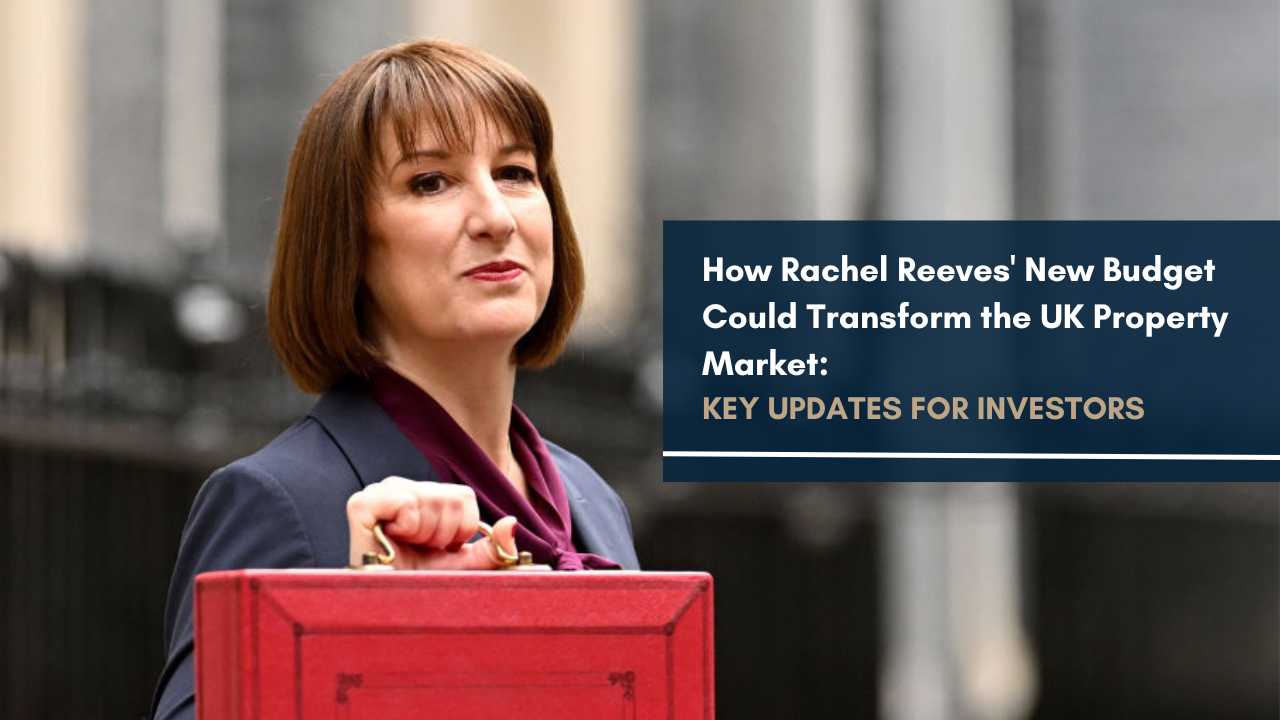£200,000 is a significant pot of money and is an excellent starting point for those looking to enter the field of property investment. Of course, no single online guide will be able to tell you exactly how to utilise this £200,000. However, we aim to provide you with all the knowledge to make the most sensible decision considering your personal circumstances.
Two incredible opportunities will be discussed in-depth in this guide: Property Development and Joint Ventures. Whilst there are many other property investment opportunities, these are great for those with a higher-than-average initial investment pot.
Consider Your Personal Goals
Every investor should begin their property journey by asking themselves the same question: ‘What are my goals?’.
We recommend that every individual makes both short-term and long-term targets. For example, a short-term goal might be to own three properties within the next five years. Once you have established this target, you can build a strategy that will help you reach it. Conversely, a long-term goal could be to have accumulated £500,000 by retirement. Then, with an already significant £200,000 starting point, you can implement a plan to build the remaining £300,000.
Contemplate Your Risk Appetite
Your goals must be considered in line with your risk appetite when deciding how best to invest £200,000. Those with a low appetite for risk may have to reconsider the timeline for their short-term goals to set realistic expectations from the off. However, £200,000 is a substantial sum of money that places investors in a highly favourable position. This is because you can choose to diversify your assets from the very beginning.
For example, £100,000 could be put towards two low-risk buy-to-let properties. City centre, off-plan homes that will attract young professionals willing to pay high rental prices would be a great place to start.
The other £100,000 could then be used for a slightly more risky buy-to-sell property. Ideal for those with renovation expertise, buy-to-sell investments offer quick lump-sum profits. Market downturns and availability can attach risk to this investment type, but an ideal option for someone with a big enough initial budget to spread.
Property Development and Refurbishments
Those with a larger-than-average investment pot may want to consider property development or property refurbishment, rather than the traditional buy-to-let method. These terms should not be used interchangeably, as there is a significant difference between the two.
Property development is generally reserved for those with expertise in the sector. Here, an investor will develop a piece of land to raise its value, which usually includes building a single home, or multiple properties. For land in the right area, developing commercial premises can be highly profitable too.
On the other hand, property refurbishment is where an investor will purchase a home and make structural and cosmetic changes to increase the property’s value. Once complete, the investor can then either rent to tenants or sell on for a quick profit.
Both of these options are great strategies for building and diversifying your portfolio. The profits generated from refurbishments or developments can then be immediately invested into high-yield rental properties with excellent potential for capital growth. We would always recommend diversifying at this point. For example, you may choose to invest in a city centre apartment, a purpose-built student property, and a House in Multiple Occupation (HMO).
There are, however, more substantial risks associated with property refurbishment and development, especially in comparison to the ‘safer’ buy-to-let model. So, it can be hugely beneficial for those new to investment to partner with someone who has experience in the field.
Joint Ventures
A joint venture is where two parties purchase a single property or portfolio of homes together. It offers an opportunity to pool resources together, splitting the profits. Joint ventures work exceptionally well where one party has expertise and connections, and the other has the funds to finance the plan.
With a £200k investment, a joint venture could provide an extremely lucrative option as it may allow you to work with someone who has the knowledge and contacts in the building industry. Depending on your long-term goals, this may permit you to purchase a portfolio of rental properties to generate a monthly yield, or a group of buy-to-sell homes, quickly creating a lump sum profit.
Advantages of Joint Venture
Expertise
Two brains will always be better than one. So, combining the knowledge and experience of two parties can help to ensure savvy business decisions.
Cost Saving
Moving into a joint venture on a 50/50 split means that although you will only reap 50% of the profits, you only have to stump up 50% of the costs. This applies to the initial outlay of deposits and fees but is also relevant for renovation costs and ongoing expenses such as service charges.
Joint Ventures Present Opportunity
Pooling resources from two parties undoubtedly opens doors for property investors. For example, it means you may be able to take on larger properties, bulk buy homes, or invest in properties in premium locations. Often, the opportunities which require significantly more capital can also create the most profit.
Significantly Increased Returns
Instead of purchasing the 2, or 3 homes that your 200k investment will afford, a joint venture could allow you to buy a small portfolio with a partner. Bulk buying homes often means that your return on investment will be substantially higher.
Disadvantages of Joint Venture
Unequal Involvement
From the very outset, investors should be aware that no joint venture is perfectly 50/50. On the contrary, the beauty of this investment method is that each individual can strengthen the other’s weaknesses.
Differing Expectations
The most common reason joint ventures fail is that each party has different expectations. This can then lead to communication breakdowns and serious business problems. Differing expectations is the number one reason why all plans and documentation should be thoroughly discussed and understood before embarking on the joint venture journey.
Tips for Joint Ventures
Always Have an Exit Strategy
The nature of these business relationships means that individuals often have different short and long-term goals. Therefore, exit strategies for both parties need to be abundantly clear from the start. This will provide a simple way out for each party and can prevent things from turning nasty.
Legally Compliant
Even for those heading into a joint venture with someone they trust entirely, ensuring your arrangement is legally watertight is imperative. This will help in the event either party would like to leave the business relationship or if you decide to liquidate the assets at a later date.
Other Options
Although developments, refurbishments and joint ventures present excellent options for those with a £200,000 investment pot, they are not the only choices.
For example, you could choose to purchase a home in a more premium location. Houses in London are substantially more than the national average, meaning the monthly rental yields are generally below the rest of the country. However, the capital growth is astronomical. For someone with a low appetite for risk and a large initial pot, purchasing a London property could be a great option.
Conversely, bulk purchases of buy-to-let homes could offer an excellent solution for investors who want a completely hands-off approach. Developers are keen to provide significant discounts for those bulk buying off-plan properties. Opt for central, in-demand apartments in growing cities (Manchester, in particular, is highly promising), and hire a management team to oversee them. While the profits may not be as substantial as some more high-risk options, the income is generally passive and very secure.
£200k Property Investment Recap
- £200,000 is a fantastic initial investment pot, allowing immediate diversification.
- Before beginning any property investment journey, you should carefully consider your personal goals and appetite for risk.
- Property development or refurbishment are excellent options for those with expertise in the area and who prefer lump sum profit over passive income.
- Joint ventures are an excellent solution for those with a significant initial investment pot, allowing you to partner with another, and gain a much higher return on your investment.
- Wondering how much money you need to invest in different types of property? Read our guide for more information.
Please contact the team via [email protected] with any questions.
Dive Deeper
How To Invest £50,000 In Property
































